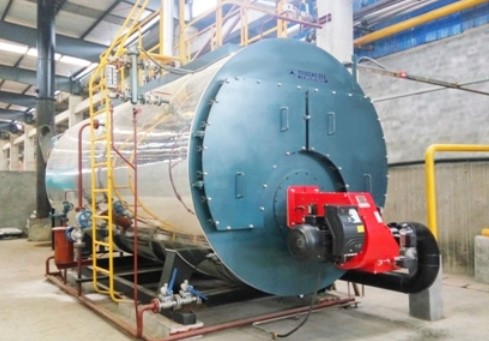Boiler Safety: Important Guidelines and Practices

Ensuring boiler safety is paramount to protect personnel, property, and the environment from potential hazards associated with boiler operation. In this guide, we explore essential guidelines and best practices to promote safe and efficient boiler operation.
Understanding Boiler Safety
Boilers, whether used for residential heating or industrial processes, operate under high pressure and temperature conditions. Proper safety measures are essential to prevent accidents, injuries, and equipment damage. Let’s discuss key guidelines and practices for maintaining boiler safety.
Essential Guidelines for Boiler Safety
Regular Maintenance and Inspections
Regular maintenance is critical to identify and mitigate potential safety hazards:
- Scheduled Inspections: Conduct regular inspections by qualified technicians to check for leaks, corrosion, and wear in boiler components, including pressure vessels, valves, and safety devices.
- Maintenance Protocols: Implement a comprehensive maintenance schedule that includes cleaning, lubrication, and testing of safety controls to ensure proper operation and reliability.
Compliance with Regulations and Standards
Adherence to local regulations and industry standards is crucial for boiler safety:
- Code Compliance: Ensure boilers are designed, installed, and operated in compliance with applicable codes and standards, such as ASME Boiler and Pressure Vessel Code, NFPA guidelines, and local regulatory requirements.
- Regular Audits: Conduct periodic audits to verify compliance with safety regulations and address any identified deficiencies promptly to maintain safe operating conditions.
Safety Device Installation and Testing
Proper installation and functioning of safety devices are fundamental to boiler safety:
- Pressure Relief Valves: Install and maintain pressure relief valves to prevent overpressure situations and protect against boiler rupture. Test valves regularly to verify proper operation within specified pressure limits.
- Water Level Controls: Implement automatic water level controls and alarms to maintain safe water levels in the boiler and prevent dry firing or flooding incidents.
Operator Training and Certification
Well-trained operators are essential for safe and efficient boiler operation:
- Training Programs: Provide comprehensive training for boiler operators on safe operating practices, emergency procedures, and the proper use of safety equipment.
- Certification Requirements: Ensure operators meet certification requirements based on job responsibilities and boiler system complexity to uphold operational safety standards.
Emergency Preparedness and Response
Develop and implement emergency preparedness plans to address potential boiler-related incidents:
- Emergency Shutdown Procedures: Establish clear protocols for emergency shutdowns and isolation of boilers to mitigate risks during malfunction or hazardous conditions.
- Emergency Contacts: Maintain up-to-date contact information for emergency response teams, including fire departments and utility providers, and ensure personnel are familiar with emergency procedures.
Hazard Identification and Risk Assessment
Conduct thorough hazard assessments to identify and mitigate risks associated with boiler operations:
- Risk Analysis: Perform risk assessments to evaluate potential hazards, such as steam explosions, fire hazards, and chemical exposures, and implement control measures to minimize risks to personnel and property.
- Safety Signage: Clearly label hazardous areas and equipment, including boiler rooms and high-pressure zones, with appropriate safety signage and warnings to alert personnel of potential dangers.
Ventilation and Combustion Safety
Proper ventilation and combustion practices are essential for safe boiler operation:
- Air Supply: Ensure adequate ventilation in boiler rooms to prevent the buildup of combustible gases and maintain oxygen levels for efficient combustion.
- Combustion Safety: Monitor and maintain proper fuel-air ratios and combustion conditions to prevent overheating, flame impingement, and potential explosions.
Record Keeping and Documentation
Maintain comprehensive records of boiler operations, inspections, and maintenance activities:
- Documentation: Keep detailed records of boiler performance, safety tests, repairs, and upgrades to track compliance with regulatory requirements and facilitate timely maintenance scheduling.
- Logbooks: Use logbooks to record daily operating parameters, maintenance tasks, and any abnormal conditions or incidents for historical reference and troubleshooting purposes.
Conclusion
By adhering to these guidelines and practices, businesses and homeowners can promote a safe and reliable boiler operation environment. Prioritizing boiler safety not only protects personnel and property but also enhances operational efficiency and regulatory compliance.
Let’s discuss how these safety guidelines align with your current boiler system and operational practices. Are there specific safety concerns or challenges you’d like to address? Your input will help tailor our discussion to meet your safety objectives effectively.




